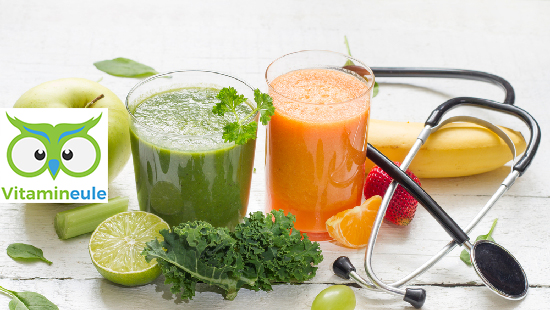

Team Vitamineule
Questions, wishes or suggestions? Simply contact us by e-mail or on Facebook.
1 Which vitamin E dosage is recommended?
The German Society for Nutrition (DGE) recommends a daily dose of 12-15 mg vitamin E for adults. For a small child, the recommended amounts of vitamin E are lower. The recommended daily intake of vitamin E for pregnant and breastfeeding women is about 17 mg. Anyone who is not supplied with vitamin E in the long term can develop a vitamin E deficiency more quickly. A vitamin E deficiency occurs when the human body is no longer sufficiently supplied with vitamin E over a long period of time. Vitamin E is indispensable and a deficiency quickly becomes apparent through symptoms such as increased susceptibility to infections or digestive disorders. A vitamin E deficiency can have various causes. On the one hand, by a congenital or acquired disease, on the other hand, by a poor diet with food low in vitamin E.
2 What is vitamin E?
Vitamin E is an essential vitamin. The vitamin is mainly produced from plants. Like many other vitamins, vitamin E is fat-soluble. The vitamin protects the body from free radicals that could otherwise cause damage. The antioxidant effect of vitamin E protects the body from oxidative stress and free radicals that can damage the skin. Vitamin E regulates the moisture content of the skin, strengthens hair growth and ensures that wounds can heal faster.
3. areas of activity of vitamin E
Vitamin E helps to tighten the skin and ensures a healthy and fresh appearance. As a strong antioxidant, vitamin E protects the human organism from attacks by free radicals. These would otherwise attack cell membranes, proteins and destroy skin fats. Without vitamin E, the skin would be wrinkled and weakened. In addition to the skin, vitamin E ensures healthy hair growth. By accelerating hair growth, the hair becomes stronger and more manageable. Vitamin E helps in the healing of scars.
4. food containing vitamin E
Vitamin E is present in varying amounts in many foods. Vegetable oils in particular contain particularly high levels of vitamin E. Less vitamin E is found in vegetables such as potatoes and cucumbers and fruit such as cherries and peaches.
TOP 5 Vitamin E sources:
1. wheat germ oil - 170 mg
2. sunflower oil - 62 mg
3. safflower oil - 43 mg
4. rape seed oil - 18 mg
5. olive oil - 11 mg
5. conclusion: Which vitamin E dosage is recommended?
Adults should consume about 12-15 mg of vitamin E daily. For children the recommended daily dose is lower. Vitamin E should be taken in daily through a healthy and balanced diet. Especially large amounts of the vitamin are contained in vegetable oils. In case of a lack of vitamin E, a change in diet is highly recommended. In addition, taking vitamin E in the form of food supplements can be very helpful.
